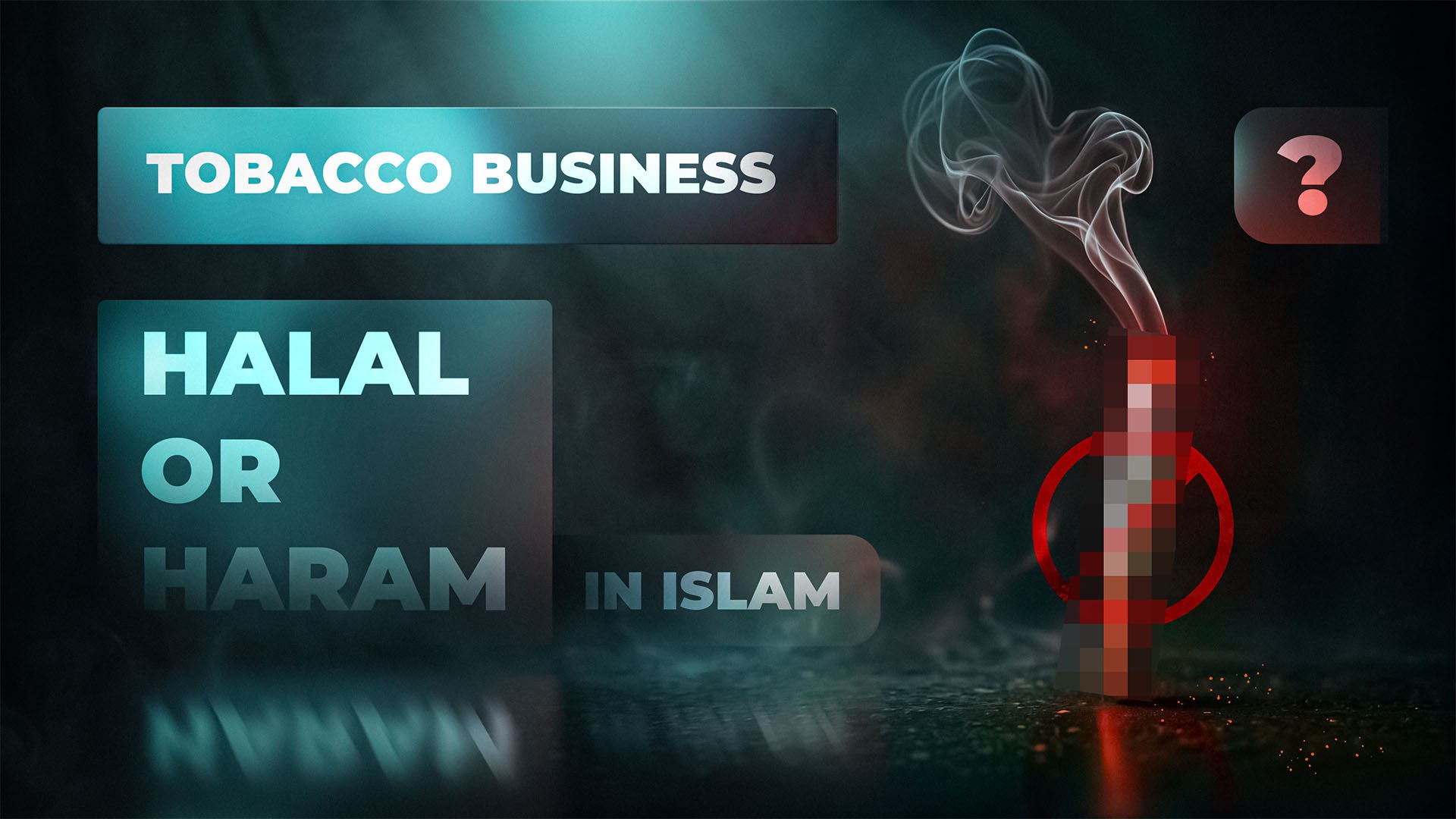Tobacco and its consumption have been subjects of debate among Islamic scholars for centuries. With the growth of the tobacco industry and its impact on health and the economy, a crucial question arises: Is the tobacco business halal or haram in Islam? This article will explore the Islamic perspective on tobacco, analyze scholarly opinions, examine arguments for and against involvement in the tobacco industry, and provide recommendations for Muslims considering investing or participating in this sector.
Historical Context and the Spread of Tobacco in the Islamic World
The History of Tobacco Introduction
- Origin: Tobacco was introduced to Europe from the Americas in the late 15th and early 16th centuries following Christopher Columbus’s explorations.
- Spread: Soon after, it reached the Ottoman Empire, the Middle East, and other Islamic regions through trade routes.
Reactions of Islamic Scholars to Tobacco’s Emergence
- Initial Unfamiliarity: Tobacco was a new plant, and its use raised questions among scholars.
- Debates: Discussions emerged on whether tobacco use was permissible (halal), disliked (makruh), or prohibited (haram).
Islamic Principles and Tobacco
Key Shariah Principles Applicable to Tobacco
- Prohibition of Harm (ضرر)
- Hadith: «There should be neither harming nor reciprocating harm in Islam.» (لا ضرر ولا ضرار في الإسلام)
- Application: If something causes harm to a person or society, it is considered impermissible.
- Prohibition of Wastefulness (إسراف)
- Quran, Surah Al-A’raf (7:31): «Eat and drink, but do not be excessive. Indeed, He likes not those who commit excess.»
- Application: Spending money on harmful or unnecessary things is considered wasteful.
- Preservation of Health and Life
- Principle: Health and life are gifts from Allah that must be preserved.
- Application: Actions that harm health should be avoided.
- Prohibition of Intoxication and Mind-Altering Substances
- Quran, Surah Al-Ma’idah (5:90): «O you who have believed, indeed, intoxicants, gambling… are but defilement from the work of Satan.»
- Application: While tobacco is not an intoxicant, its effects on the body raise concerns.
Opinions of Islamic Scholars on Tobacco
Diverse Positions
- Haram (Prohibited)
- Arguments:
- Health Harm: Modern medical research has proven that tobacco causes various diseases.
- Harm to Others: Secondhand smoke affects those around the smoker.
- Wastefulness: Spending money on a harmful habit.
- Arguments:
- Makruh (Disliked)
- Arguments:
- No Explicit Prohibition: There’s no direct mention of tobacco in the Quran or Sunnah.
- Personal Preference: Some scholars view it as undesirable but not strictly forbidden.
- Arguments:
- Mubah (Permissible)
- Arguments:
- Lack of Evidence of Harm: In earlier times, the harmful effects of tobacco were not known.
- Cultural Acceptance: In some societies, tobacco use was commonplace.
- Arguments:
Contemporary Fatwas and Positions
- International Islamic Fiqh Academy: Deems tobacco haram due to its proven health risks.
- Scholars of Al-Azhar University (Egypt): Tend toward the prohibition of tobacco.
- Fatwa Councils in Various Countries: Many have issued rulings declaring tobacco use and trade as haram.
Medical Aspects and Their Influence on Islamic Rulings
Health Risks of Tobacco
- Diseases Associated with Smoking
- Lung Cancer
- Cardiovascular Diseases
- Chronic Obstructive Pulmonary Disease (COPD)
- Stroke
- Secondhand Smoke
- Impact on Children and Family
- Increased Risk of Diseases in Non-Smokers
Islamic Ethics and Health
- Obligation to Preserve Health: Islam encourages caring for one’s body and health.
- Prohibition of Self-Harm and Suicide: Smoking is viewed as a form of gradual self-harm.
The Tobacco Business: Production, Trade, and Investment
Tobacco Production
- Cultivation
- Environmental Impact: Soil depletion, use of pesticides.
- Ethical Issues: Exploitation of workers, child labor.
Sale of Tobacco Products
- Marketing and Advertising
- Targeting Youth and Vulnerable Groups
- Regulatory Restrictions: Many countries have bans and limitations on advertising and sales.
Investing in Tobacco Companies
- Financial Aspects
- Profitability: Despite restrictions, the tobacco industry remains lucrative.
- Ethical Investments
- Socially Responsible Investing: Many investors avoid tobacco companies for ethical reasons.
- Shariah Screening: Tobacco companies are typically excluded from halal investment portfolios.
Practical Recommendations for Muslims
1. Avoid Involvement in the Tobacco Business
- Do Not Work in the Tobacco Industry
- Production, marketing, sale of tobacco products.
- Do Not Invest in Tobacco Companies
- Avoid stocks and bonds of tobacco companies.
2. Support Public Health
- Educational Programs
- Participate in anti-smoking campaigns.
- Charitable Work
- Support organizations working to improve public health.
3. Lead by Personal Example
- Quit Smoking
- Personal commitment to abstain from tobacco use.
- Influence Your Circle
- Encourage friends and family to adopt a healthy lifestyle.
4. Consult with Scholars
- Seek Religious Guidance
- Approach local imams and scholars for clarification.
Frequently Asked Questions
1. Can I work for a company associated with tobacco if my role isn’t directly involved in production or sales?
- Answer: Even if your role is indirect, participating in a business that contradicts Islamic principles is discouraged. It’s better to seek alternative opportunities.
2. Is investing in funds that include tobacco companies haram?
- Answer: Yes, since your funds would support haram activities. It’s recommended to choose halal investment funds.
3. What should I do if I’m already working in the tobacco industry?
- Answer: It’s advisable to look for opportunities to transition to another sector and seek repentance. Allah is merciful to those who sincerely strive to correct their actions.
The Role of Equal Finance
Equal Finance aims to assist Muslim investors and professionals by:
- Education: Providing information on halal and haram investments.
- Consultations: Helping choose investments that comply with Shariah.
- Support: Offering resources for transitioning to halal activities.
Conclusion
The tobacco business is generally considered haram in Islam, especially in light of modern scientific evidence about tobacco’s harm. Muslims are encouraged to avoid involvement in this industry, whether through employment, investment, or other support. By adhering to Shariah principles and caring for society’s health, we can contribute to creating a healthier and more just world.


